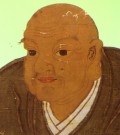Exploring the Simultaneous Nature of Cause & Effect
Star Trek: The Next Generation: Finale, Episode – “All Good Things…”

 I’ve just watched the double episode finale to the TNG Picard series just after the cyclists finished their ascent of Mont Ventoux in this years Tour de France. It was “All Good Things…”(see link, link & link for full episode info)
I’ve just watched the double episode finale to the TNG Picard series just after the cyclists finished their ascent of Mont Ventoux in this years Tour de France. It was “All Good Things…”(see link, link & link for full episode info)
In a nutshell, Picard, by the absolute faith that his crew have in him, across three different life-times, undoes a space-time anomaly of their own creation which saves life on Earth…
What I saw was a fine dramatic representation of the Buddhist principle of karma transcending time and space, and the principle that karma (all that we and our lives are) can be changed both backwards and forwards in time; The simultaneity of cause and effect!
Well! While all fine and dandy as a piece of fiction, how can I say that this is what it’s really like?
Deceased Ancestors

Nichiren Daishonin, the 12th century Japanese Buddhist monk, in a letter to the grandmother of Jibu-bo Nichii, one of his disciples, tried to explain a bit of the history behind a ceremony for the dead to her. (A Buddhist service held for the repose of the dead. Such ceremonies were conducted annually, usually on the fifteenth day of the seventh month.) In it, he says, almost a conclusion to his explanation,
The Venerable Maudgalyayana put his faith in the Lotus Sutra, which is the greatest good there is, and thus not only did he himself attain Buddhahood, but his father and mother did so as well. And, amazing as it may seem, all the fathers and mothers of the preceding seven generations and the seven generations that followed, indeed, of countless lifetimes before and after, were able to become Buddhas. In addition, all their sons, their wives or husbands, their retainers, supporters, and countless other persons not only were enabled to escape from the three evil paths, but all attained the first stage of security and then Buddhahood, the stage of perfect enlightenment. – On Offerings for Deceased Ancestors, WND, p820
![]() I’ve highlighted the crushing significance that summarises the whole letter, both in it’s literal summary and as it’s sense and meaning. Nichiren is saying that we can affect the past from now, as well as the future. Like Jean Luc Picard in Star Trek episode, the past, present and future are as one, overlapped, affecting each other in a miraculous way.
I’ve highlighted the crushing significance that summarises the whole letter, both in it’s literal summary and as it’s sense and meaning. Nichiren is saying that we can affect the past from now, as well as the future. Like Jean Luc Picard in Star Trek episode, the past, present and future are as one, overlapped, affecting each other in a miraculous way.
It’s as if the arrow of time , something everyone experiences in their daily lives, does not exist.
Faith

Of course, faith is behind all of this; but if we accept both tales at face value there is much to commend it and the value system for life that they support. Here’s how it panned out for Maudgalyayana….
He was a disciple of Shakyamuni, (the person we call “The Buddha”, idolised in many lands). Maudgalyayana was supposed to have supernatural powers, such as mind-reading, out-of-the-body experiences and walking through walls. He also brought bad karma upon himself by killing his parents which led to his death at the hands of bandits. To change his karma, he studied the Lotus Sutra, so that later, when he met the bandits he ignored his powers and did not defend himself.

Shakyamuni said that even supernatural powers are of no use to avoid one’s karma, especially when it is so heavy… That’s what was said and believed at the time.
But is it true? Is any of this possible?
I believe it is so. We can change the past as well as future. Harry Patch who died today aged 111, recalled shooting a German in the leg so as not to kill him (see here), just after seeing a young man die. He said,
“I fell in a trench. There was a fella there. He must have been about our age. He was ripped shoulder to waist with shrapnel. I held his hand for the last 60 seconds of his life. He only said one word: ‘Mother’. I didn’t see her, but she was there. No doubt about it. He passed from this life into the next, and it felt as if I was in God’s presence. I’ve never got over it. You never forget it. Never.”
When they reached the enemy’s second line four Germans stood up, and one ran forward pointing his bayonet at Patch who, with only three rounds left in his revolver, wondered what to do. He then deliberately fired at the man above the ankle and above the knee….”You’ve got a memory. You’ve got a brain about the size of a tea cup. I’ve got a memory that goes back for 80 or 90 years and I think that memory goes on with you when you die. And that’s my opinion. Death is not the end.”
Experiences like this can be rationalised into the mere electrical workings of the brain. But in a way, Patch’s actions shaped the rest of his life. He didn’t die early, and maybe had the well-known “survivor’s guilt” for not doing so. But like the fictional Jean Luc, he has communicated across the ages and affected people because of it. Without being a Buddhist, his actions have nevertheless been Buddhist.
The follow up to the quote above (from a BBC documentary), is that his three chums were blown to bits 6 weeks later. His not un-natural words were;
“If I had met that German soldier after my three mates had been killed, I’d have no trouble at all in killing him”….
The thing is, he didn’t. The order of events was different and as in the Star Trek story, who’s to tell what’s what?
Planck’s Constant and Entanglement

It’s been said that if Planck’s Constant were slightly different – or maybe not so constant – then we ourselves might have the supernatural powers to be able to walk through walls like Maudgalyayana. In fact, the physics says that this must be so! The natural repulsions of atoms would be different and matter could diffuse through matter with less interaction (or be totally inert depending which way it went).
Surely this is a definition of supernatural?
Planck’s Constant is a derived measure from a complex suite of theory. For physics, it’s as fundamental as pi – one of the most bizarre things in the universe – bizarre because most people have heard of it and can describe what it is, yet no-one can measure it, exactly, or say why it pops up in so many equations.

Surely this is a definition of supernatural?
Entanglement is another “spooky” quantum property. Einstein did not like this because of the “simultaneity” which went plain against his experimentally provable Relativity theory (Edington proved this because light bends near large masses). But it exists and experiments have now been done that confirm (at least so far) simultaneous action at a distance. (see Was Einstein Wrong?: A Quantum Threat to Special Relativity). So experiments prove both instantaneous action at a distance and space-time bending….
Surely, this also is a definition of supernatural?
“My own suspicion is that the universe is not only queerer than we suppose, but queerer than we can suppose.” – JBS Haldane
…although a better version, attributed to Edington goes,
“Not only is the universe stranger than we imagine, it is stranger than we can imagine.”
Good Merit
Nichiren, in his explanatory letter to the grandmother of Jibu-bo Nichii, follows the passage above with a quote from the Lotus Sutra saying,
Therefore, it is said in the third volume of the Lotus Sutra, “We beg that the merit gained through these gifts may be spread far and wide to everyone, so that we and other living beings all together may attain the Buddha way.”
This is also similar to a further sentence which I say twice every day,
But those who practise meritorious ways, who are gentle, peaceful, honest and upright, all of them will see me here in person, preaching the Law. At times for this multitude I describe the Buddha’s life span as immeasurable…
When Patch first spoke about WW1 he said, “For eighty years I’ve never watched a war film, I never spoke of it, not to my wife. For six years, I’ve been here [in the nursing home]. Six years it’s been nothing but World War One. As I say, World War One is history, it isn’t news. Forget it.”
He obviously hated everything about WW1. But for his last 11 years, after living a life of gentle merit, he finally spoke and told his tale. Like the Venerable Maudgalyayana who changed his karma, bathed in the ‘queerness’ of the universe, Patch changed his by finally telling his story after sowing the seeds so long ago. He’s made sure people don’t forget it. The Star Trek episode “All Good Things…” touched on this also. Where the past meets the present, which meets the future.

It’s as if there is a common strand of semi-known knowledge across all of humanity that just needs to be awakened.
- Sometimes it’s story-tellers,
- Sometimes it’s traumatised soldiers,
- Sometimes it’s scientists searching for truth…?
We all know it, we all know how to behave. But we forget.
A Dream within a Dream
I suppose that all sentient beings are questing for “truth”.
- Sometimes we need some proof, like the scientist.
- Sometimes we need emotional trauma, like Harry Patch.
- Sometimes though, the truth is self-evident, and is a belief, derived from universal truths beyond time and space, elucidated by an enlightened one and transmitted as a belief system and a way of life.
This later one we call Buddhism.
As Nichiren said, a dream within a dream…. the proof for this truth lies within the words and actions of ordinary people searching for this truth….
When the world makes you feel downcast, you should chant Nam-myoho-renge-kyo, remembering that, although the sufferings of this life are painful, those in the next life could be much worse. And when you are happy, you should remember that your happiness in this life is nothing but a dream within a dream, and that the only true happiness is that found in the pure land of Eagle Peak, and with that thought in mind, chant Nam-myoho-renge-kyo. – The Fourteen Slanders, WND, p760
The inter-connectness of all things is how The Buddha described it. His last words have various translations into English, but they all convey the same meaning that the universe is transient and an exhortation to do one’s best!
e.g.
- “Behold now, bhikkhus, I exhort you: All compounded things are subject to vanish. Strive with earnestness!” – link
- “All created things are impermanent. Strive on with diligence.” – link
- “Behold, O monks, this is my last advice to you. All component things in the world are changeable. They are not lasting. Work hard to gain your own salvation. Do your best.” – link
- “Behold, O monks, this is my last advice to you. All component things in the world are changeable. They are not lasting. Work hard to gain your own salvation.” – link
- See Harry Patch’s death today in my previous post here.

Leave a Reply
You must be logged in to post a comment.